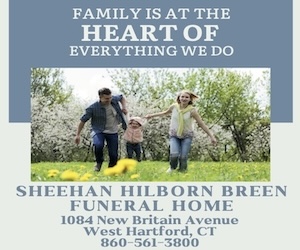Jewish Association for Community Living celebrates 30 years
By Cindy Mindell
WEST HARTFORD – Three decades ago, there were two residential options for people with developmental and intellectual disabilities: an institution or at home with parents who had little communal support.
Societal change was afoot: the federal government was beginning to develop laws to guarantee public education for students with special needs. In June 1979, a local group of parents were launching their own quiet revolution, when West Hartford resident Marlene Scharr convened a meeting to discuss options for children with developmental disabilities.
Next month, what would become the Jewish Association for Community Living (JCL) will celebrate its 30th anniversary at Beth El Temple in West Hartford.
Scharr was catapulted into the world of special needs in 1966 when her daughter, Elizabeth, was born with Down syndrome. “All the parents I met were concerned about what would happen to our children once we were no longer here,” Scharr says. “At the time, when someone had a child with a disability, especially Down syndrome or ‘retardation’ there wasn’t a place for them and oftentimes the child would stay at home. There were even elderly parents who moved into the Hebrew Home for the Elderly [in West Hartford]
and had to take their adult children with them. It didn’t make sense at all. But some parents didn’t know how to give their children independence.”
Scharr was serving on the board of Greater Hartford Association of Retarded Citizens (now HARC) and was a member of the organization’s first committee for residential homes, which sought government funding to set up group homes throughout the state.
“I didn’t want to get involved with the government and felt more comfortable with the Jewish community because I know how we take care of our people,” she says. Long active in the local Jewish community, Scharr and her group, the Committee for the Developmentally Disabled, brought the idea to the Jewish Federation of Greater Hartford. With the support of Executive Vice President Howard Charish, the endeavor became a communal one. The JCC of Greater Hartford (now the Mandell JCC) opened its doors to JCL members; Beth El Temple in West Hartford hosted a Sunday school program. An auxiliary was launched for fund-raising and public relations activities. Three years later, in 1982, the organization was incorporated as the Jewish Association for Communal Living.
Funded by private donations and a grant from the Jewish Community Foundation of Greater Hartford, and guided by real-estate developers Max Javit and Michael Konover, JCL purchased a property on Arapaho Road in West Hartford Center, where it opened its first kosher group home in 1983. Six men and women moved into the six-bedroom facility,
two of whom – Janet Bialik and Jay Butler – will be honored at the Nov. 8 event. (The other four original residents were middle-aged and seniors when they entered the home, and have since died, says JCL director Denis Geary.)
“The Jewish community was fantastic; they really supported the whole idea in a very caring and accepting way,” Scharr says. “It was a whole new concept, and Hartford was one of the first and few Jewish communities to have this kind of home where residents could have their own lives. I give a lot of credit to the families who entrusted their children to us.”
In 1990, JCL launched its first supported-living program, when Butler and Bialik moved out of the Arapaho Road home into apartments at Federation Square in West Hartford. Two more group homes followed, in 1995 and 2001. JCL’s supported-living program has grown simultaneously, Geary says; the organization now supports 15 group-home residents
and 20 men and women living in their own apartments or condos.
“In our industry, we recognize that not everybody needs to be in a 24-hour group home,” Geary says. “Folks with disabilities come in all shapes and sizes, all levels of ability and potential and capability. Many men and women we support need assistance on a daily basis, but not necessarily in the presence of staff twenty four-seven.” Those in supported-living environments pay their own bills with Social Security, Supplemental Security Income, and/or wages from their jobs.
“Any milestone is significant, but this one is special for JCL because we are unique,” says Geary. “We are the only Jewish-oriented non-profit organization created solely to serve adults with developmental and intellectual disabilities, year-round and residential, for their entire lives,” says Geary.
With some 850 group homes and hundreds of supported-living facilities blended into residential neighborhoods throughout Connecticut, JCLs are still the only ones in the state that incorporate kashrut and Jewish holidays, though the organization is non-sectarian. Residents participate in Jewish programming through partnerships with area synagogues and Jewish community organizations, and volunteers host Shabbat dinners and other activities at the three group homes.
Thirty years after she inspired her mother to help transform the local idea of community, Elizabeth Scharr, now 46, is living in JCL’s first group home and working at a local law firm, the personification of what the organization’s founders envisioned for their children. “We’ve moved from being custodial caregivers to really helping the men and women we support live full, meaningful lives,” Geary says. “The idea is that people with disabilities can have independent lives, and rather than over-protecting them or expecting them to be someone they can’t be, we meet them where they are and let them live their lives.”
For more information on JCL’s 30th anniversary celebration visit www.jcl-ct.org or call (860) 522-5225.
Comments? Email cindym@jewishledger.com.








 Southern New England Jewish Ledger
Southern New England Jewish Ledger











